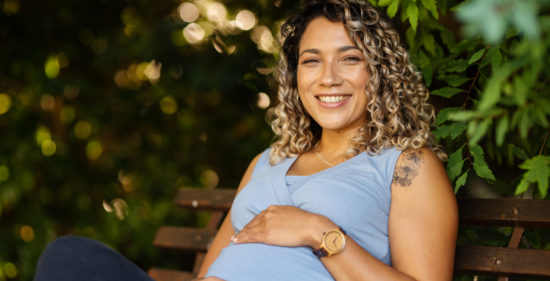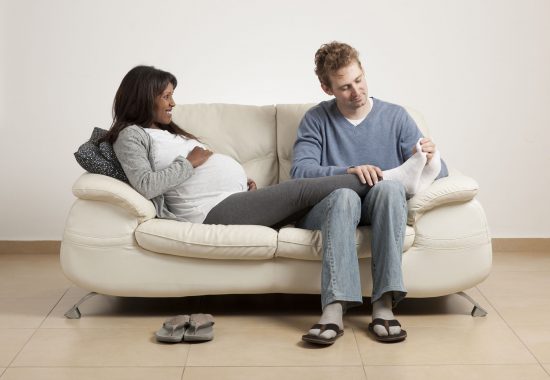Find out what perineal massage is and how it might work to help you avoid a tear or episiotomy when you give birth.

The perineum is the area of skin and muscle between the vagina and anus.
The pressure of giving birth on your perineum means it may tear or need an episiotomy (surgical cut) when your baby is born.
Up to 9 in 10 first-time mothers who have a vaginal birth will have some sort of tear, graze or episiotomy.
An episiotomy is a non-routine surgical cut to the vaginal opening, which is intended to prevent more serious tears.
Up to one in 10 women experience pain for up to 18 months after a serious perineal tear or episiotomy.
Yet there is something you can do that might help – perineal massage. Research has shown that perineal massage reduces the chance of a perineal tear or episiotomy.
Another review showed that pelvic floor exercise and perineal massage reduced perineal trauma, while the EPI-NO perineal dilator (marketed as a childbirth and pelvic floor training device) had no benefit.
Perineal massage is a way of helping to prepare the perineum for childbirth, making it more flexible so it can stretch more easily during labour. Massaging the perineum reduces the chances of a tear or an episiotomy during labour and perineal pain afterwards. This is particularly the case for those giving birth vaginally for the first time.
Perineal massage involves massaging the area between the vagina and anus during late pregnancy. Some people massage their perineum themselves, while others prefer to get their partner to help.
From when you’re 35 weeks pregnant onwards.
It’s possible, although not guaranteed. A number of things can affect whether you tear or have an episiotomy during childbirth.

It’s also a good idea to keep up your pelvic floor exercises throughout pregnancy. This helps ensure your pelvic muscles are supportive during pregnancy, you can release them during labour and they return to being supportive after you give birth.
If you need further information about or support with perineal massage talk to your antenatal teacher, midwife or GP.
Our support line offers practical and emotional support with feeding your baby and general enquiries for parents, members and volunteers: 0300 330 0700.
We also offer antenatal courses which are a great way to find out more about having a baby, labour and life with a new child.
The Royal College of Obstetricians and Gynaecologists (RCOG) has an information hub for perineal tears and episiotomies in childbirth. You can find out more about the types of tears that can occur during childbirth, how to minimise your risk of deeper tearing, and what can be done to help your recovery if you do tear. It also covers what to do if you have any concerns about your recovery, helping you feel better informed when discussing any topics with a healthcare professional.